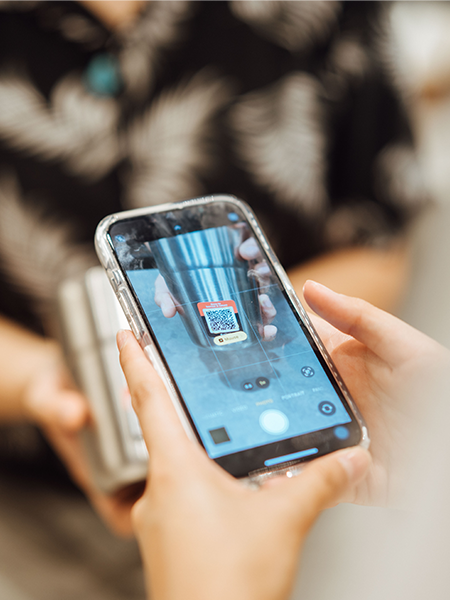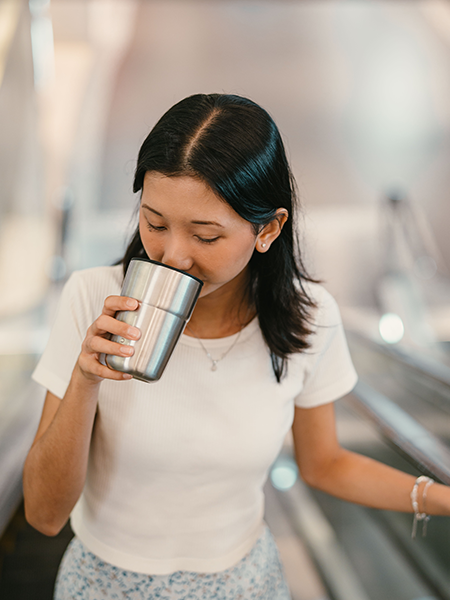To reduce food wastage and the use of disposables, the National Environment Agency (NEA) has launched this year's Say YES to Waste Less (SYTWL) campaign on May 14, 2024.
More than 140 partners across various sectors in Singapore have pledged their support.
The waste problem
Excessive food waste and use of disposables add to the cost of incinerating waste sent to Singapore's one and only Semakau Landfill, which is projected to be full by 2035.
In a family of four, a jarring S$2,200 is spent on takeaway containers yearly, alongside over S$1000 worth of unfinished side dishes.
"Making sustainable choices in our daily lives saves the environment and benefits our pockets," NEA stated in a press release.
An annual initiative
First launched by NEA in 2019, the SYTWL campaign is an annual initiative that works towards advocating sustainable practices to reduce food wastage and the use of disposables.
From individuals to institutions, the SYTWL campaign aims to spread its message via social media platforms as well as on-ground engagements with the community, schools and business partners.
Some individual actions the campaign encourages include bringing your own reusables when shopping, as well as buying just enough food to reduce waste.
This year, over 140 organisations of all sizes and across diverse industries have pledged their support, drawing on technology and collaborative efforts to reduce waste.
You may know these familiar names:
ION Orchard
In partnership with container reuse scheme Muuse, ION Orchard will be the first local shopping mall to introduce a pilot programme that reduces single-use waste through a "closed-loop reusable system".
The programme will run till Sep. 30, 2024.
At participating brands such as Starbucks, Toast Box, Common Man Coffee Roasters and Food Opera, shoppers may borrow a free reusable cup or container from Muuse and return them within 30 days for professional cleaning.
 Photo from ION Orchard
Photo from ION Orchard
 Photo from ION Orchard
Photo from ION Orchard
Decathlon
Decathlon Singapore has removed all plastic from their e-commerce operations and single-use plastic bags from their stores.
It also aims to become a zero-waste company by 2026.
In 2024, it intends to "reach zero defective product waste", and has launched a Buy Back programme, where shoppers can sell their pre-loved Decathlon bicycles back to the store.
The bicycles will then be refurbished to be put back on sale under Decathlon's Second Life category of products.
GrabFood
The introduction of the cutlery toggle sets all GrabFood orders to 'opt-out' by default, allowing majority of GrabFood orders to be placed with the 'no cutlery' option.
Since then, the majority of GrabFood users opt for no cutlery.
Grab also partners with Muuse to grant consumers the option of using reusable containers.
IKEA
Globally, IKEA has eliminated single-use plastics from its home furnishing range and replaced disposable packaging in its food operations.
Since 2018, local IKEA Restaurants have successfully reduced waste by more than 50 per cent.
IKEA was also the first store in Singapore to completely eliminate disposable plastic shopping bags back in 2013, replacing them with their iconic reusable blue bags.
Mono Foods
Mono Foods is a social enterprise that aims to reduce food waste by selling surplus food or foods that are near their best-before dates at low prices.
It redistributes these food items at their store at the Yue Hwa building at Chinatown and at pop-up booths.
Shoppers are free to pay as they wish for any items that are past their best-before date.
Top photo from Lawkoh/Google Maps and Tun Aung Khine/Google Maps
If you like what you read, follow us on Facebook, Instagram, Twitter and Telegram to get the latest updates.



